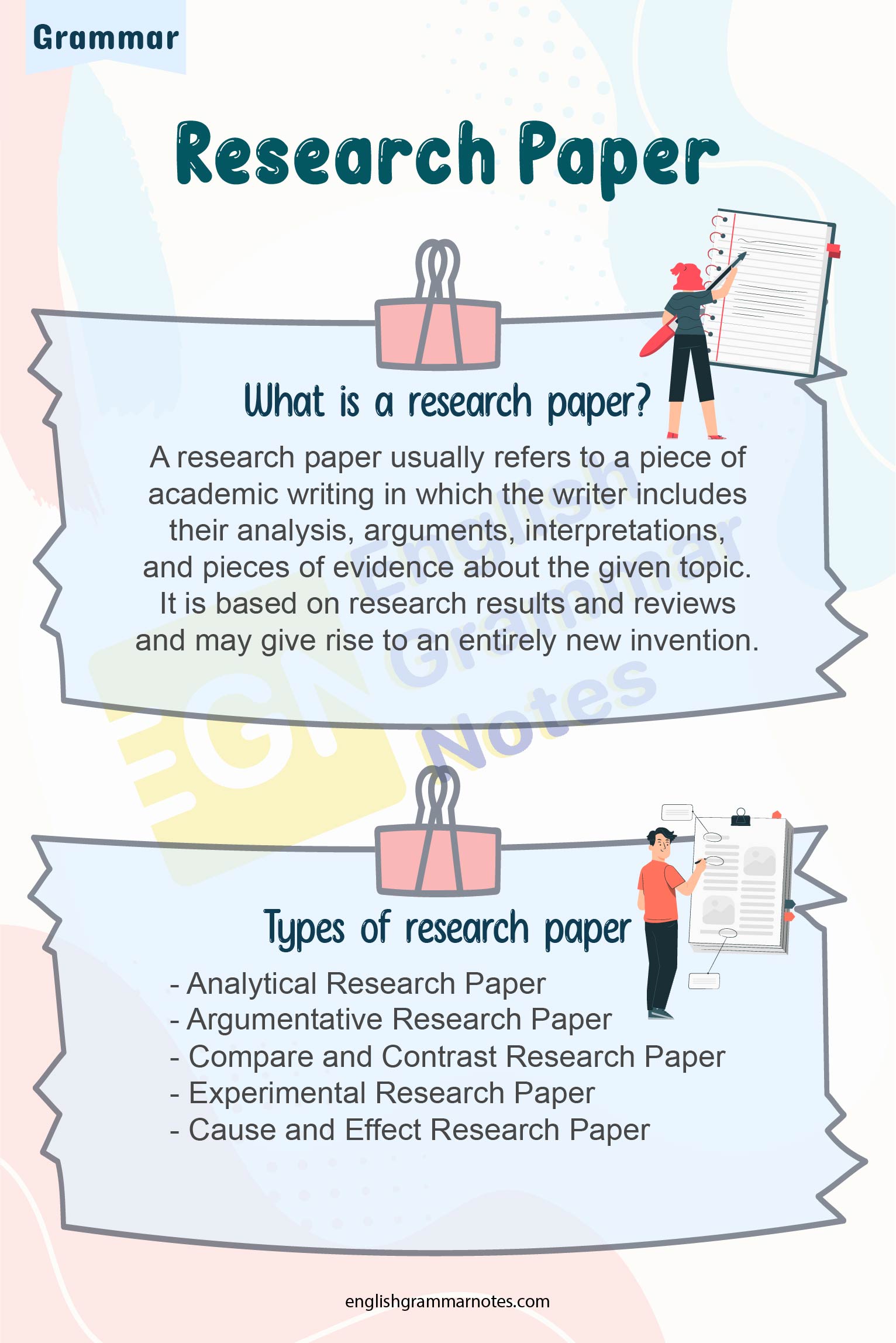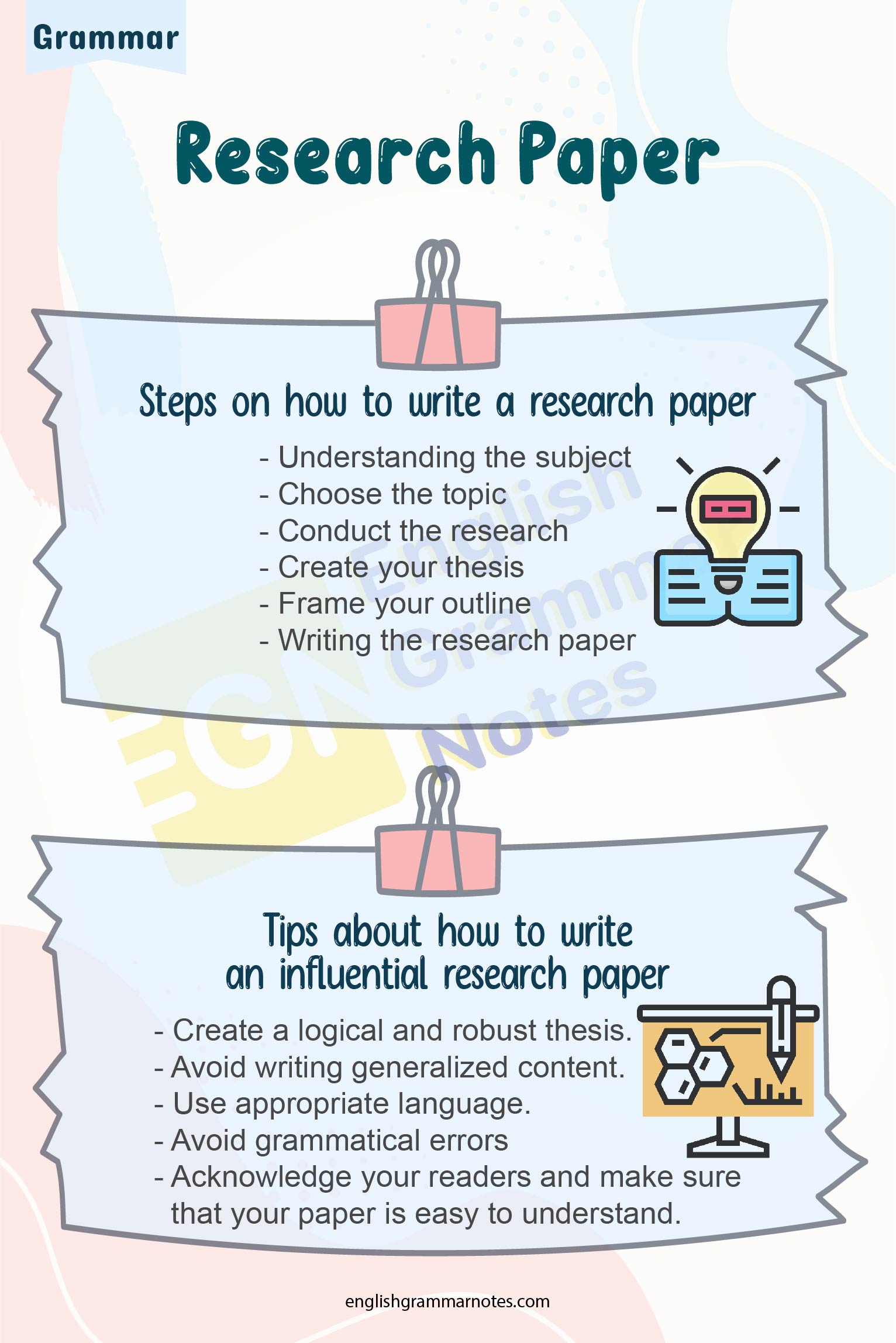How to Write a Research Paper? A research paper refers to an extended essay that presents the writer’s interpretation, argument, or evaluation. There are different types of research papers and each type of research paper tags along with a very different kind of preparation.
Now that you are aware of the research paper concept, you may think about how to write a research paper? Well, to answer your question, this article will provide you with the steps that you can follow to write a research paper. There are how to write a research paper PDFs that you can refer to while writing a research paper since they provide an how to write a research paper example.
Many undergraduates associated with research write research papers, but those papers are not worth publishing. They don’t need to look for articles that specifically discuss how to write a research paper undergraduate.
If you follow the steps that are provided in this article, you will surely be able to write a good and well-written research paper and receive the excellent grade you were waiting for!
How to Write a Research Paper in English?
- What is a research paper
- Types of research papers
- Steps on how to write a research paper
- Tips on how to write a good research paper
What is a research paper?
A research paper usually refers to a piece of academic writing in which the writer includes their analysis, arguments, interpretations, and pieces of evidence about the given topic. It is based on research results and reviews and may give rise to an entirely new invention.
These papers are similar to academic essays but are usually more detailed and longer when compared. The research papers allow you to practice your writing skills and express your views and research. Writing a research paper will allow you to demonstrate a good knowledge of your topic.
It will also allow you to engage and go through different aspects and approaches to the issue.
Types of research paper
There is a wide range of research papers available. Each of them is different from the other in some way and has different ways of writing. Today in this article, let us go through some of the most common research papers below:
Analytical Research Paper
Under this paper, the writer poses a question and then gathers data and information from the works of other researchers. The collected data is analyzed, and the writer provides a personal conclusion. Usually, in these research papers, one avoids presenting their views and comments regarding the issue.
Argumentative Research Paper
This paper expresses both sides of a controversial issue. It includes the arguments of different researchers along with the writer’s opinions. The ultimate motive of this paper is to convince the reader of your side. The writer should write their perspective and arguments logically, support them with shreds of evidence, and not get too emotional.
Compare and Contrast Research Paper
The compare and contrast paper is used for the analysis of the difference between the two perspectives. Here, the writer needs to provide an ample amount of description regarding both perspectives, compare and contrast them, and show support regarding one perspective.
Experimental Research Paper
Under this paper, the writer describes a specific experiment and provides enough details. It is generally used for writing biology, physics, and chemistry experiments. The investigation needs to be supported by correct information and analysis.
Cause and Effect Research Paper
The cause and effect paper is the first research paper written by school students and college students. These papers trace the expected results from a specific action and then answer questions like why and what. These questions reflect the cause and effect of the action. This paper helps to analyze a set of results that can be expected from a specific situation or activity.

Steps on how to write a research paper
Understanding the subject
Before starting the research paper, one must get familiar with the subject of the research. Go through it very carefully and clear out all your doubts. Make sure you are well aware of the time frame, length, and submission method. Plan out the process of your research, writing, and editing of the paper.
Divide the given time carefully and make a list of the critical points.
Choose the topic
The topic for a research paper can be chosen either by brainstorming ideas or by consulting a professor or a peer. Keep in mind that the issue must be something that is interesting and has grounds for research work. You can select a broad topic and then narrow down a specific topic that seems interesting to you.
One can also refer to other papers and gain inspiration. The topic should be original, have enough information available for research, and fulfil the criteria of the given assignment.
Conduct the research
Gather information regarding your selected topic and note down any and every little point that interests you. Keep reading and evaluating information while taking notes about the sources and citing. Do not limit your research to only information available on social media websites; go through journals, books, and other research papers to gather more information regarding your selected topic.
Have a comprehensive concept regarding the issue, and then arrange your thoughts in an organized manner. It will help you to write your paper quickly and more efficiently.
Create your thesis
A thesis refers to a statement that sums up the main points of the research paper. It also provides a preview of all the supporting facts and expresses the purpose of your writing. Writing the thesis just after the introductory paragraph can help the readers get a clear idea about the primary articles main purpose from the beginning.
The view should be concise, should summarize the crucial objective, and support it.
Give yourself enough time to create a strong and well-defined thesis since your entire paper will be built on it. A good dissertation assures a good research paper.
Frame your outline
An outline of your research paper will allow you to organize your thoughts before you start penning them down. It comprises the main topics, the arguments, and the evidence you will be using in your paper.
Any point or idea that misfits in the outline will have to be removed from the actual research paper, no matter how intriguing it was. Dedicate enough time while framing your strategy since it will give you a rough idea about how your paper will finally look.
Writing the research paper
Since you have already followed the above-mentioned mentioned steps, the process of writing will be much easier. At this point, your thoughts will be well organized, and you can use your outline and thesis for reference. The entire paper will be in paragraph structure, and each paragraph will discuss an important point.
One can use sentences that will create connections between two sections. The basic writing format of a research paper is to start with an introduction, move on to the main body of the paper, and then wrap it up with a conclusion.
The introduction
The introduction should be engaging and informative. The reader should be having a clear idea about the paper’s content, the importance of the article, and the arguments that will be presented in the report.
Create a background, provide the necessary information regarding the topic and define the key terms. Inform the reader about the importance of your case and why they should indulge in reviewing your paper. State the thesis and make it clear, compelling, and convincing.
The main body
This part can be pretty challenging to write. It contains the majority of the information that you will include in your paper. Use your outline as a guideline and be flexible while writing. But do not stray away from your thesis and stay focused on your arguments, pieces of evidence, and main points.
Make sure that the paragraphs included in your body should not contain similar data. Even if two sections cover a particular point, the approach of both the paragraphs should be different. Give supporting arguments while writing every moment. Begin with your strong end, then follow it up with another strong point, and then finally wrap up with your most vital energy.
The conclusion
The conclusion refers to the final paragraph that wraps up your entire research paper. A decision should restate your essay’s thesis in a different language, provide a briefing of the main points, and give the reader a sense of finality.
Trace through all the discussed points and make sure that the reader can understand the issue discussed in the paper. Do not write unnecessary content and start the conclusion with sentences like, “to sum it up”.
Revise
After completing the writing:
- Go through your paper thoroughly.
- Look out for all the minor grammatical errors and word choices.
- Fill in all the missing details and check the language of your article.
- Allot enough time for revising and going through some main points.
- Check whether the thesis is clearly expressed.
- Make sure there is no repetitive content, and your paper is free of plagiarism.
- Check whether everything is organized in the way you want it to be.
- Lastly, make sure that your paper is logical, has enough supporting evidence, and does not include generalizations.
Tips about how to write an influential research paper
- Create a logical and robust thesis. Your entire writing will be based on your thesis, so make sure that it is logical and clear. Don’t make it too complicated since the readers will face difficulties while understanding the main topic.
- Avoid writing generalized content since it may not be appropriate for your paper. Support all your points with logical pieces of evidence and explanations. Organize your paper neatly and clearly so that the readers can understand the discussed issue clearly.
- Use appropriate language and make sure that all your arguments support your thesis and prove it. Make sure that the paragraphs are well organized and maintain a smooth flow between them.
- Read your paper aloud after finishing so that you can avoid grammatical errors and miscommunication of words. Reading it aloud will also let you understand that whether your thoughts are written clearly or not.
- Acknowledge your readers and make sure that your paper is easy to understand. They should not face difficulties while reading your research paper, and hence you must have a clear and straightforward perspective that is easy to understand and support.
A research paper will always allow you to present your arguments and perspectives supported by shreds of evidence and logical explanations. Following the steps mentioned above and tips will allow you to write a persuasive paper that will impress your readers. Keep in mind the crucial points, and nobody can stop you from securing good grades for your research paper.
